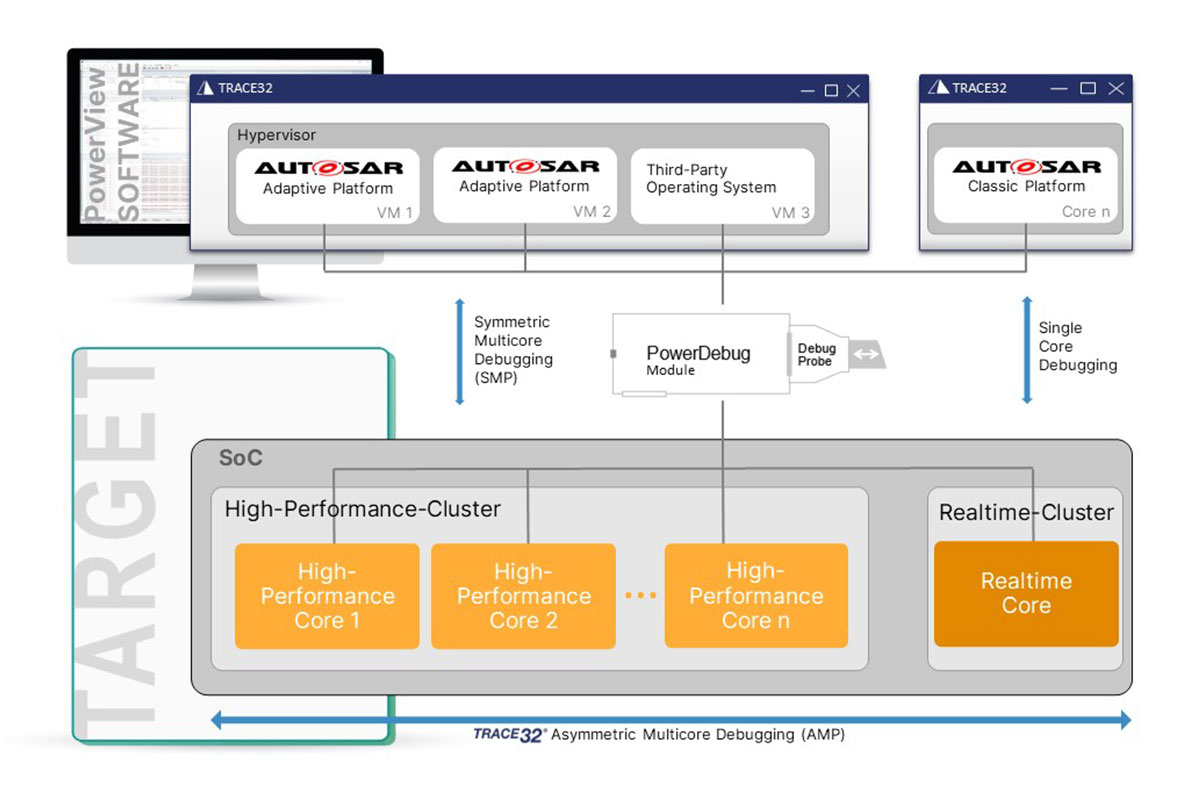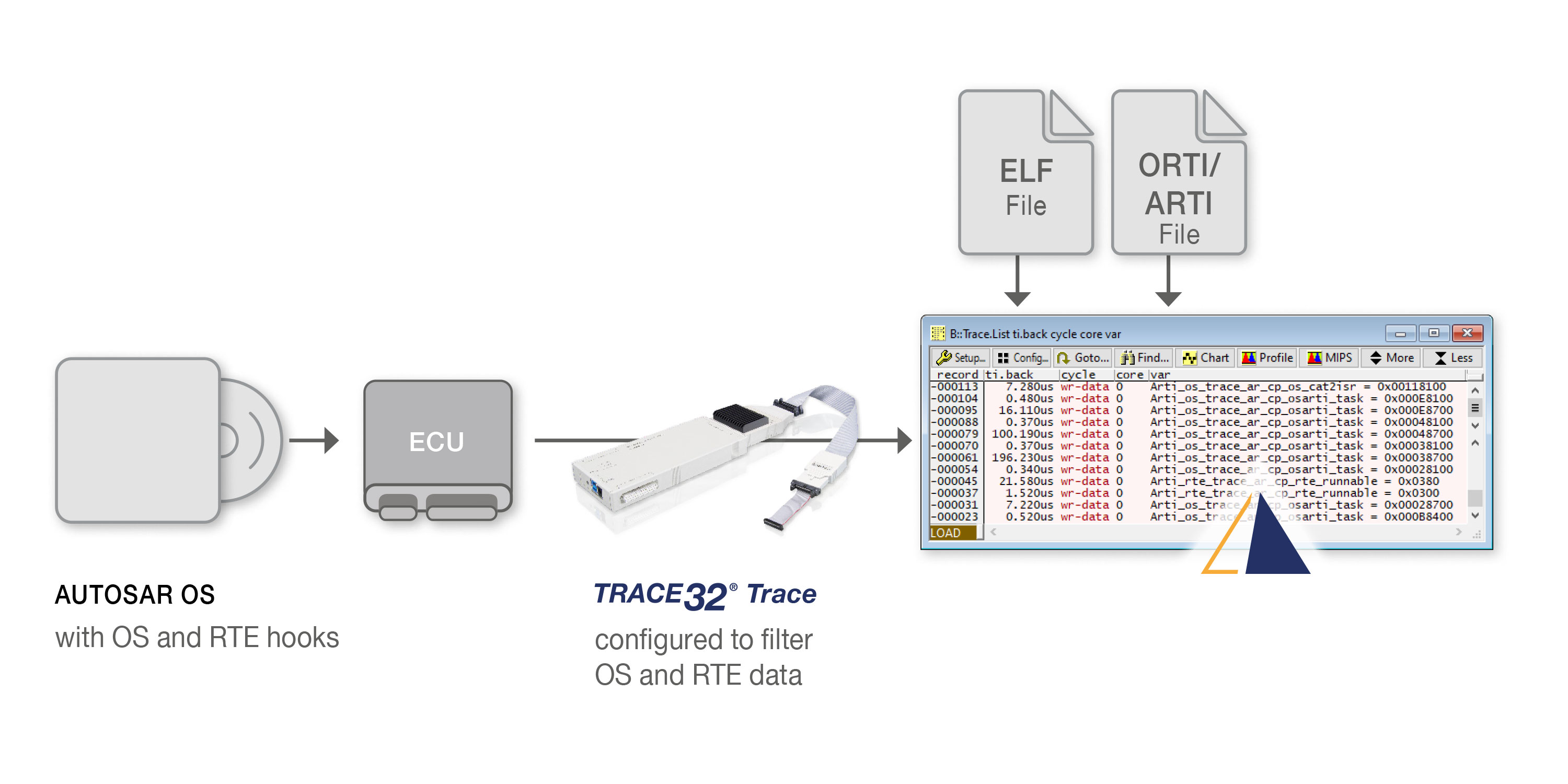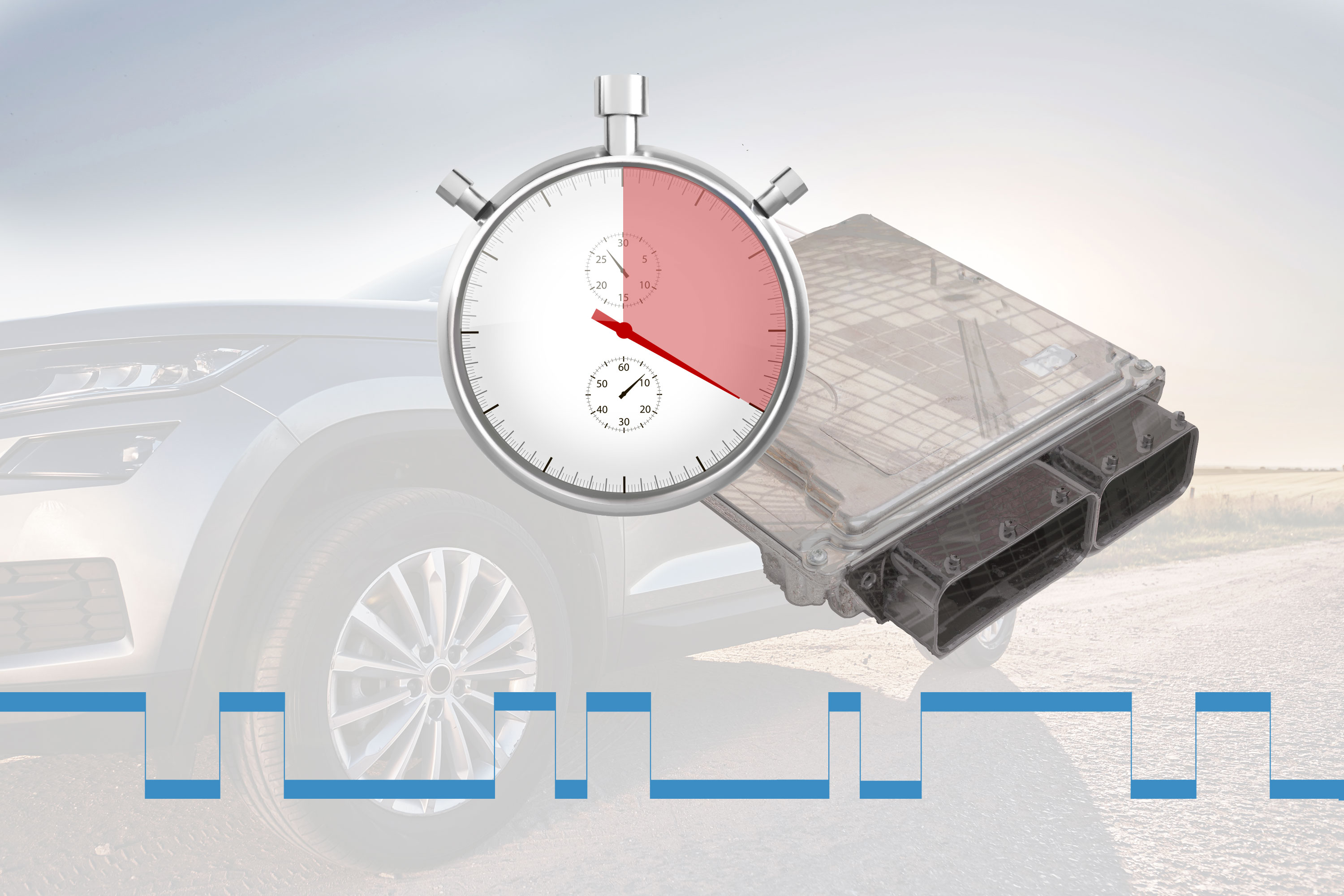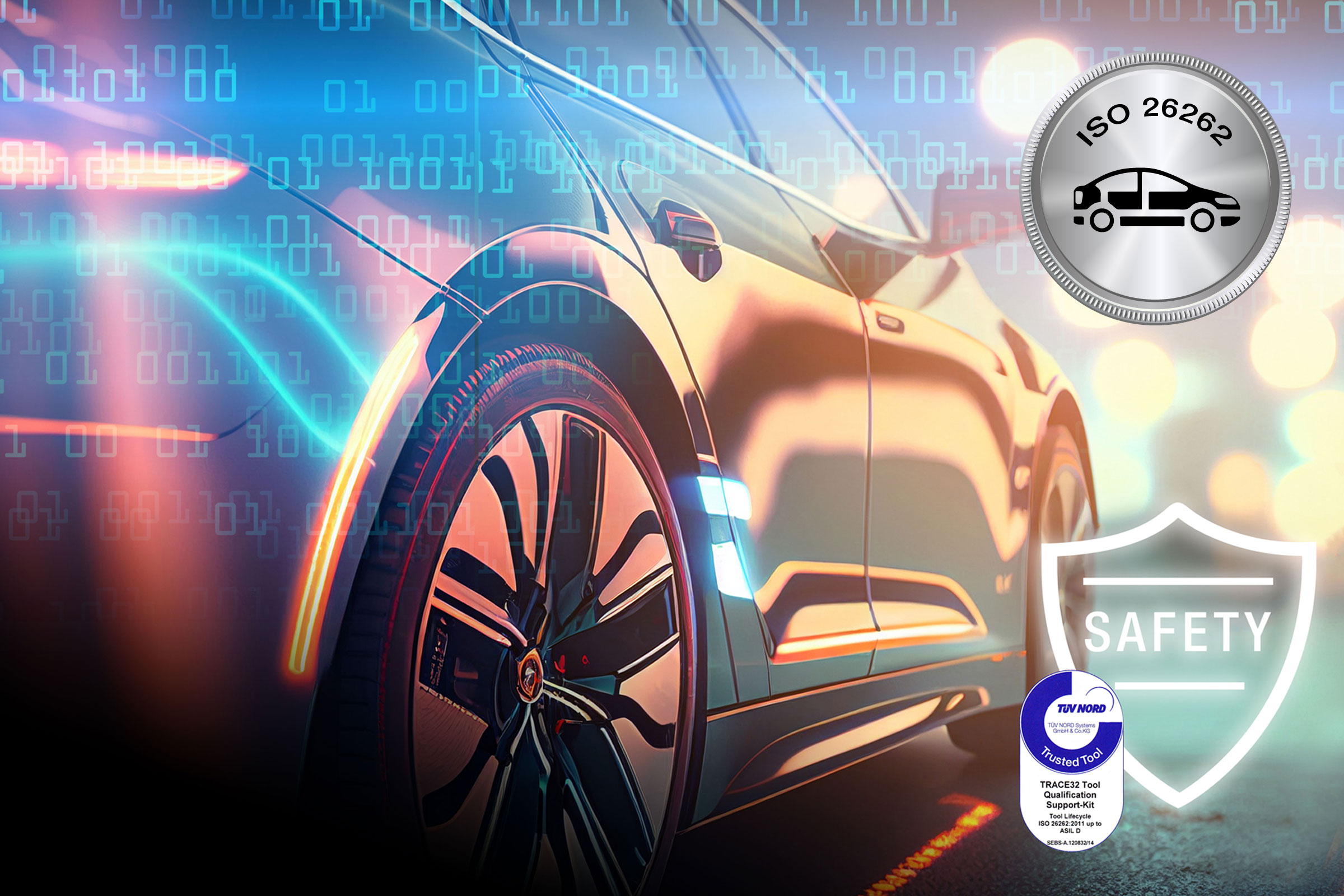AUTOSAR
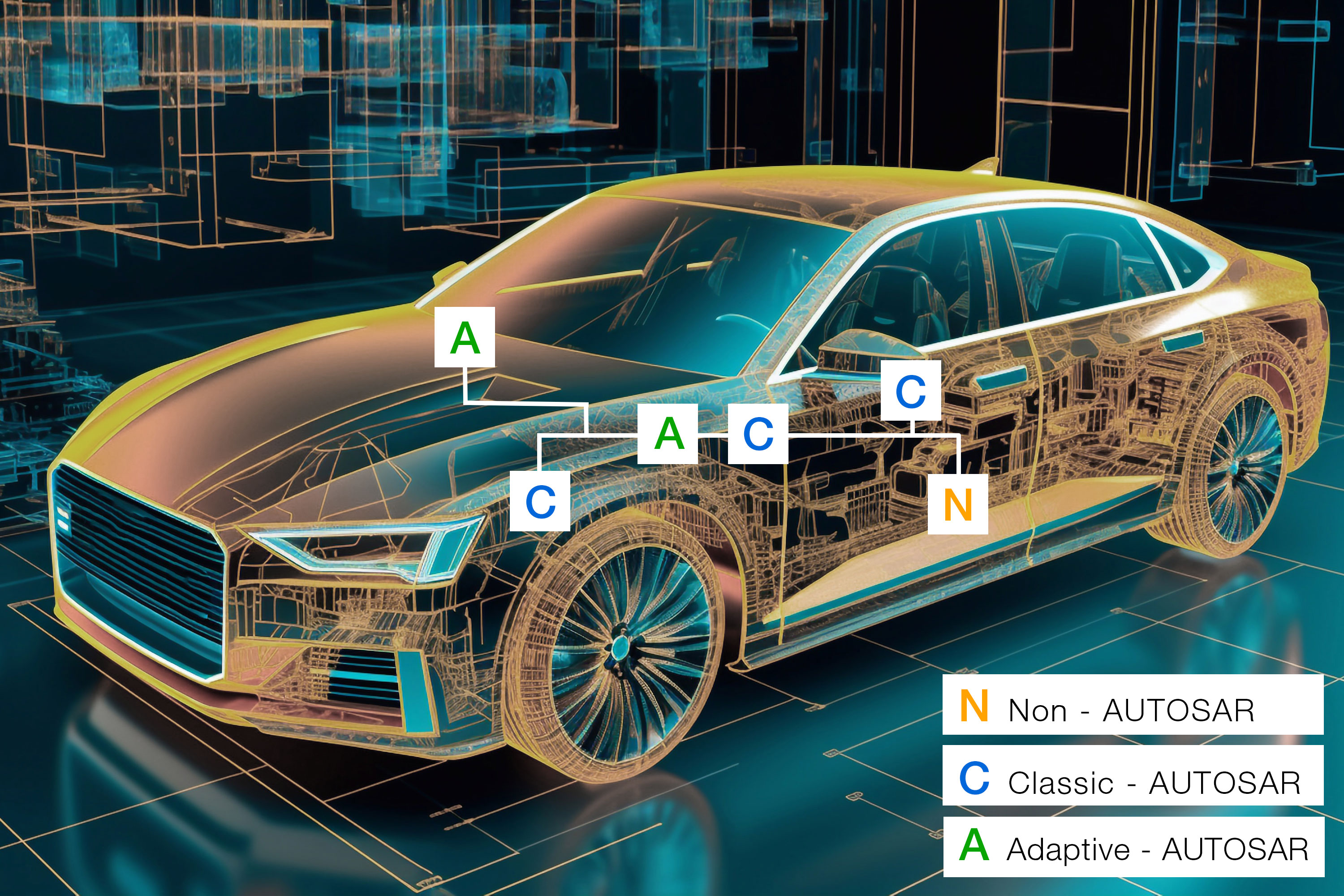
Debugging the AUTOSAR Classic Platform
The AUTOSAR Classic platform uses a static operating system that is based on the OSEK OS and has been extended by AUTOSAR to include a number of functionalities. TRACE32® OS-aware debugging for AUTOSAR Classic based operating systems is activated by loading the ORTI file or the AUTOSAR ARTI description file. Our PowerView software is extended by an menu extension, which provides you access to AUTOSAR OS resources like tasks, alarms, stack coverage, and much more. If you are running multiple AUTOSAR Classic operating systems on multicore SoCs, our TRACE32® tools support the concurrent debugging of them, too. This includes also hypervisor debugging of virtualized systems.
Debugging the AUTOSAR Adaptive Platform
In contrast to the Classic Platform, AUTOSAR Adaptive Platform uses a POSIX operating system profile (POSIX Profile PSE51). This means that Linux, for example, which has long been used in the automotive sector for infotainment systems and other applications, is also available as an operating system for the Adaptive Platform. In addition to Linux, our TRACE32® tools support all relevant POSIX-compatible operating systems such as QNX, PikeOS or eMCOS.
If you are running multiple AUTOSAR Adaptive Platform-compliant operating systems on multicore SoCs, our TRACE32® tools support the concurrent debugging of them, too. This includes also hypervisor debugging of virtualized systems.
Concurrent Debugging for AUTOSAR Classic and AUTOSAR Adaptive Platform
Due to the almost unlimited support for any multicore configuration our TRACE32® debug and trace tools also support various configurations for the concurrent debugging of AUTOSAR Classic based and AUTOSAR Adaptive compliant operating systems. A typical configuration can be seen in the picture on the right.
